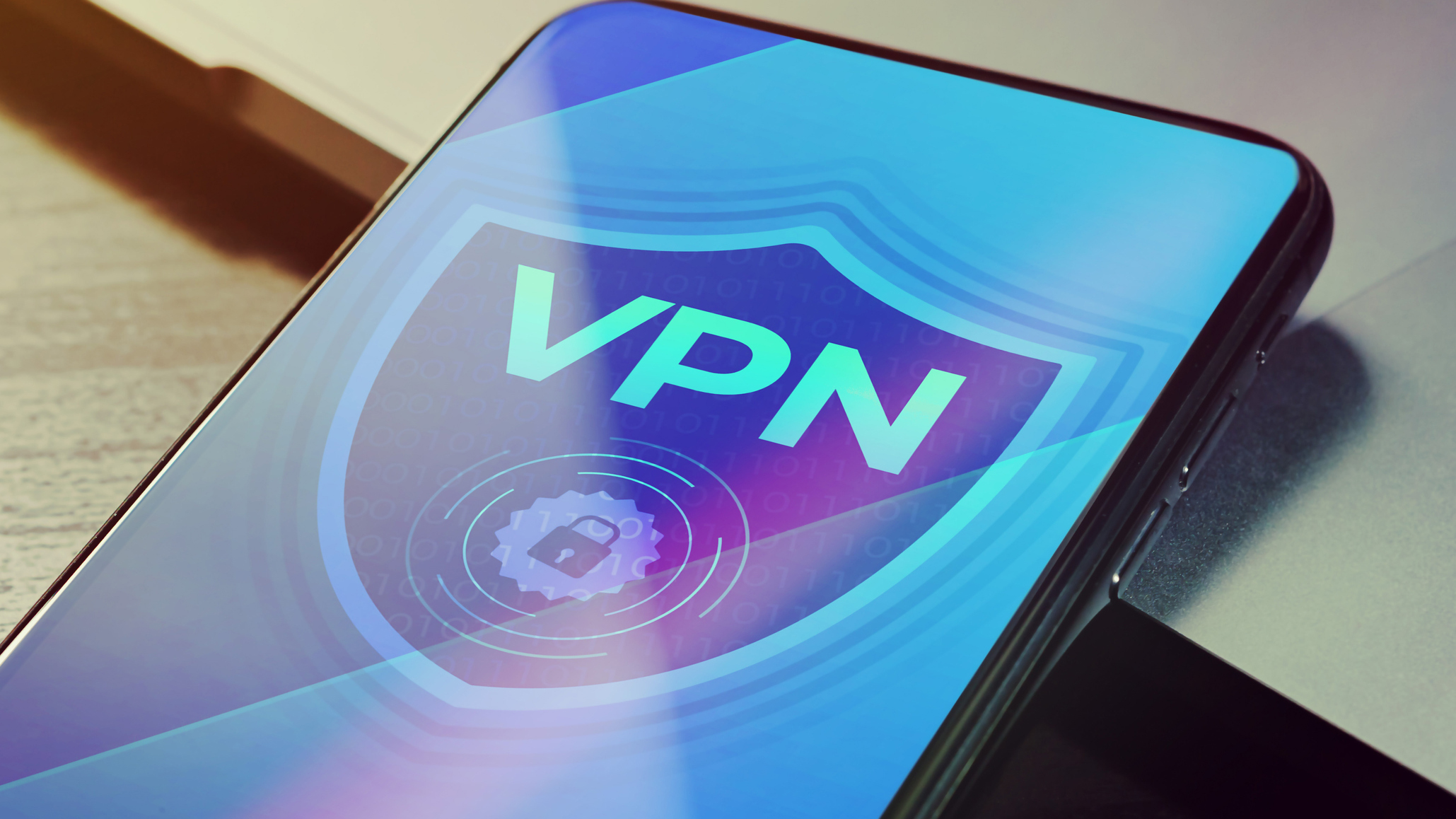What are the differences between Windscribe and Windscribe Free?
With such a solid free plan available, is it worth upgrading?

Windscribe is a versatile VPN service with an impressive suite of goodies to offer, including class-leading speeds, unlimited connections, and powerful apps that pack a ton of options – including a handy one-click connection.
It's also one of the few top VPNs to offer a free plan, which is good in a pinch but not as powerful as the paid alternative. Still, it's a reliable free VPN that puts your privacy first.
I'll dig into the difference between Windscribe's plans and discuss why shelling out for a budget-friendly premium plan is better in terms of security, streaming, and overall value for money.
Windscribe – from $5.75 per month
Powerful and secure with a generous data cap
Windscribe offers apps for all devices and top-notch security, thanks to solid encryption and powerful extras like an ad and tracker blocker. There are also no annoying limits on simultaneous connections, the service unblocks most streaming platforms with ease, and its speeds are some of the fastest around. All this at just $5.75 a month makes Windscribe great value for money – though a reliable free plan is available, too. While a 3-day money-back guarantee is admittedly not very impressive, it's certainly enough to give you a risk-free taste of the service.
Windscribe Free
Let's dig into the specifics of the Windscribe Free service. I'll provide a detailed overview of its apps, security, unblocking, and data limits.
Apps
Windscribe Free offers fairly easy-to-use apps for all devices: Windows, macOS, Android, iOS, and Linux, as well as Chrome and Firefox browser extensions.
Getting connected is as simple as pressing the Connect button to be paired up with the nearest Windscribe server. Alternatively, you can choose a location from the drop-down list or use the new server location search function.
Windscribe Free comes ready to use fresh out of the box.
Head over to the settings, though, and you'll find a wealth of options to tinker with, from changing the VPN protocol to setting up your device as a Wi-Fi hotspot. Windscribe's huge configurability can seem complicated, especially for beginners, but you don't have to tweak with every option and setting. Windscribe Free comes ready to use fresh out of the box.
It's also one of very few free services to offer unlimited simultaneous connections, meaning you can log into as many devices as you want with just a single Windscribe Free account. Now, even though you can, technically speaking, create new accounts for different devices – after all, the product is free – unlimited connections make life so much more convenient.
Data
Windscribe offers 10 GB of free data if you sign up with your email - and that's pretty standard. Proton VPN's free plan gives users unlimited data, however, and PrivadoVPN's free tier offers unlimited (but sluggish) emergency data.
It is worth noting that you can bag an extra 5 GB of monthly data by posting on X.
Alternatively, if you'd rather trial Windscribe Free before forking over your email, you can do so – though you'll be limited to just 2 GB of data a month.
Performance
Windscribe is right up there with the fastest VPNs on the market right now, and the best part is that this is true for both its free and premium plans.
It maxed out our testing line with a whopping 910 Mbps when using WireGuard, meaning there will be little to no interruptions due to buffering or lag, whether you're casually browsing, streaming in HD, or gaming online.
What's more, top speeds of 240 Mbps when using OpenVPN are just as impressive.
No logs
This one's a biggie. There are a lot of free VPNs out there that log your data and sell it for a profit – after all, they're not making money from subscriptions, and user data is a hot commodity.
Windscribe Free's clear-cut privacy policy explains that there's a very small amount of logging – just your total bandwidth used and the last time you connected to the VPN – which isn't concerning at all seeing as the VPN uses this information to enforce its monthly data limit.
However, the service has yet to undergo a security or no-logging audit to back up its commitment to security, but we hear that it's going to happen soon – so watch this space.
Servers and streaming
Windscribe's free plan offers a generous amount of servers in 14 locations, in 10 countries, including Canada, the USA, Switzerland, Hong Kong, and Germany. This beats most of the free competition, like PrivadoVPN Free, which offers access to just 10 locations.
The good news kept coming as I put the service through our standard unblocking tests; it effortlessly sidestepped the geo-restrictions on UK Netflix and BBC iPlayer. That said, PrivadoVPN Free is still my top free recommendation for anyone on the hunt for a reliable streaming VPN.
Features
One of the highlights of Windscribe Free is that it doesn't lock any of its features behind a paywall.
In addition to industry-standard AES-256 encryption, the free plan also comes with a robust kill switch, firewall, and split tunneling.
Plus, there's also P2P support and port forwarding, which make Windscribe Free a surprisingly secure torrenting VPN.
Windscribe Free doesn't lock any of its features behind a paywall
In addition to all of this, there's also the R.O.B.E.R.T. filter, which blocks ads and trackers to enhance your overall privacy. It'll banish those pesky targeted ads and put a stop to third-party snooping, so you can go about your day-to-day browsing without worrying about landing on a dodgy link.
Windscribe Premium
The Windscribe Premium yearly plan trickles down to a modest $5.75 per month, making it more expensive than the likes of Surfshark and PIA (the best cheap VPNs right now), but certainly more affordable than ExpressVPN and Proton VPN.
Next, the monthly plan commands a premium, as is the norm, and costs $9 per month. The paid plans come with unlimited data, however, which is one of the biggest improvements over the free plan.
There's also a 'Build a Plan' subscription, which allows you to select the servers you'd like access to and pay only for those at $1 per location per month. It's also worth noting that every location you add (you'll have to select a minimum of two locations) gets you 10 GB of data a month, or you can upgrade to unlimited data for another $1.
The "Build a Plan" subscription lets you pick (and pay for) the servers you need access to
Plus, you'll be billed monthly on this plan, which makes it an awesome choice for occasional short trips. For example, if you're off to the UK for a couple of weeks and would like to access servers back home in the US, you can add a few British locations to your plan and a US-based server to enjoy the same streaming platforms and sites you do back home.
As mentioned above, Windscribe's free plan is as feature-rich as its premium plans, and everything from rock-solid encryption, a kill switch, and the speediest and safest VPN protocols to an in-house ad blocker, P2P support, and content unblocking is available to every single Windscribe user.
That said, paid users do get access to more geo-restricted streaming platforms and servers in more places – 69 countries and 134 cities as opposed to the free plan's 10 countries. Having more servers at your disposal equals less congestion to deal with (lots of users won't flock to a select few servers), ensuring a seamless experience at all times.
Why should I pay for a VPN?
Windscribe, PrivadoVPN, and Proton VPN are the best-case scenarios when it comes to free VPNs. They're a sample of a larger service – and they're designed to tempt you into purchasing a paid plan. It's how they make their money, and it's how all free VPNs should operate.
Free services that promise the world but don't have a paid plan to upgrade to are often unreliable and malicious schemes that log private user data and sell it to advertisers and data brokers to turn in a profit.
The bottom line is that a free plan offered by a reputed provider is going to have limitations, such as fewer simultaneous connections, slower speeds, a lack of features (think dedicated servers, split tunneling, P2P support), and less reliable (or completely absent) unblocking power.

Looking to grab a VPN for a rock-bottom price? Check out our VPN deals page for the latest and greatest savings.
A paid plan, however, doesn't have these drawbacks. You get the whole scope of functionality (depending on the plan you choose), which can mean a better boost to your overall digital privacy (tons of providers offer extras such as an antivirus, password manager, dark web monitoring, etc.) and more control over who sees (or doesn't see) what you do online.
The VPN business model of offering top-notch service for a fee is the best there is since it's a win-win situation: customers get unquestionable privacy (which, many would argue, is the whole point of getting a VPN in the first place) and the VPN company gets its well-earned share.
Also, note that the subscription fees you pay go towards maintaining the VPN infrastructure, bolstering user privacy through developing new tools and security audits, and avoiding getting blacklisted from streaming platforms around the world.
However, the fact that you should pay for a VPN doesn't mean that you need to pay first in the hope that the service turns out to be exactly what you were looking for. Almost every single VPN comes with a money-back guarantee (the standard is 30 days), which gives you a risk-free trial of the full product so that you can ultimately decide whether you want to commit to that long-term plan.
Disclaimer
We test and review VPN services in the context of legal recreational uses. For example: 1. Accessing a service from another country (subject to the terms and conditions of that service). 2. Protecting your online security and strengthening your online privacy when abroad. We do not support or condone the illegal or malicious use of VPN services. Consuming pirated content that is paid-for is neither endorsed nor approved by Future Publishing.
Krishi covers buying guides and how-to's related to software, online tools, and tech products here at TechRadar. Over at Tom's Guide, he writes exclusively on VPN services. You can also find his work on Techopedia and The Tech Report. As a tech fanatic, Krishi also loves writing about the latest happenings in the world of cybersecurity, AI, and software.
